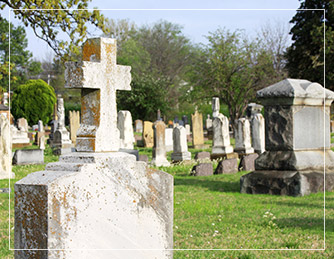For in that sleep of death what dreams may come…
– William Shakespeare, Hamlet
Being at any funeral is often stressful. The person you have lost will be missed. Be they a loved one, cherished friend or a close co-worker, what better way to bid farewell than by paying them a tribute with words written and spoken from your unique perspective?
But writing and giving a eulogy is not easy. You are expected to condense the persons life into a speech of a few minutes and that can be emotionally stressful. You want to bring them alive with your words, to provide some solace to family and friends in all their sorrow. You want the eulogy to highlight their finest moments in life, their achievements.
Writing a eulogy is difficult for most people because it brings with it such a sense of responsibility. These final words will be a way to keep their memory alive, not only in your heart, but in the hearts of your audience.
So how do you start? With some preparation you can write a eulogy that will become a fitting tribute, causing new and old friends to come along and shake your hand, passing on words of thanks and sharing their memories at the end of the ceremony.
Death – the last sleep? No, it is the final awakening.
– Sir Walter Scott
How to Start
One of the best ways to start writing a eulogy is to concentrate your thoughts on the person about whom you are writing. Think about the enduring qualities that made them who they were, the essence of their personality and the impact they made on those around them.
As a Friend
If you are a friend of the deceased, talk about how you met, what attracted you to him or her and what made your friendship last all these years. With friends, we are on an equal footing, we can be completely ourselves and can drop all inhibitions and step away from the image of us that is presented to our family. Friends reveal a facet of their personality that is probably not known to others and it is this unique relationship that can be revealed when delivering a eulogy. Take advantage of the fact that you knew your friend in a way that probably no one else did and offer that insight to their family through a eulogy.
As Family
If you are delivering the eulogy as a family member your task can be even more difficult as the grief you feel may seem overwhelming. However the special and instinctive bond that you share with that person will be a unique contribution to the eulogy.
You know so much about the important times of their life, what they felt and thought about certain things, how they dealt with others and how they dealt with themselves. You know the whole story of their lives: what was their most defining moment? What made them happy and what saddened them, what was their passion in life and where did they think they lacked?
As family you were also privy to the hard times in their life and could see first-hand how they coped with these difficulties and what made them a strong person. These are just a few ideas to get you started on a final farewell for someone you loved and cared for but whatever you say the memories and insights you share will be precious to those that have lost a loved one.
The courage of life is often a less dramatic spectacle than the courage of the final moment; but it is no less a magnificent mixture of triumph and tragedy A man does what he must-in spite of personal consequences; in spite of obstacles and dangers and pressures – and that is the basis of all human morality.
– John Fitzgerald Kennedy, The Meaning of Courage
As a Co-worker
The values and beliefs are what define the character of a person and nowhere are they more evident than at work. So as a co-worker delivering a eulogy think about what was it about them that set them apart from others at the workplace. Was it their integrity, the values they upheld, the way they dealt with other people? What were the challenges they faced and how did they overcome them? How did others around them view them as a co-worker?
You can use different perspectives when thinking about a person basing your speech on what you already know. It would also be a good idea to talk to other people who knew them well or who worked with them at some point. It would help to keep jotting your thoughts down on a piece of paper which you can refer to while writing your speech.
But noble souls, through dust and heat, Rise from disaster and defeat The stronger…
– Henry Wadsworth Longfellow, The Sifting of Peter
Who is in the Audience?
Another thing to keep in mind when writing a eulogy is the people who will be listening. Are you going to be talking only to family and friends or will there be other people too? Keep in mind that a eulogy is meant to elaborate on a person’s life gone by… it will be a sensitive time for the family and friends. So you may want to reflect on certain points and leave out others in your speech, depending on who would be listening.
The gathered family needs help dealing with the loss and the knowledge that their loved one’s life was important and meaningful to so many others will help with this. So keep in mind what your audience would want to hear the most.
Finally, even at a funeral, people need to keep time. So try to gauge the amount of time that would best suit the occasion and make sure you stick to it by writing down your speech and rehearsing it beforehand.
This brings us to the next part – the actual writing of the eulogy.
In Black and White
Once you have thought about what you want to say in the eulogy and have made some notes, it is time to put pen to paper.
This might be easier said than done. For a lot of people writing down their thoughts, organising them into a recognisable and seamless structure that delivers the essence of what they want to say is the hardest thing to do. That is why jotting down your thoughts as they come to you is important and helpful when you are creating the body of your speech. Here are a few ways you could write your speech:
- You could divide the speech into two or three parts and then arrange your notes accordingly. As long as you are able to convey what you started out to say and your sentences are not exceptionally long, the actual thoughts will weigh over grammar. In any case you are not expected to deliver a speech with impeccable syntax; it is what you have to say that matters more.
- Another way of writing the eulogy is to not actually write it. Instead of preparing a text use your notes to act as pointers and just let it flow from the heart. Since you knew the person and have already collected your thoughts, words will flow easily
If you want a pre-written speech and don’t know where to start you could try one of these:
- Start from a particular time, either from when you met first till the present or start from the present and go back in time. After all, a eulogy is a remembrance and a walk down memory lane. In the process you will be able to bring out the best qualities of the person, their dreams, hopes and fears and create a lucid picture for the audience to appreciate and remember.
- You could start with a small incident that, you know had a significant impact on the deceased’s life. It could help to figure out two or three important occasions in your loved one’s life that shaped them as the person everyone knew and loved. Make those occasions the keystones of your eulogy.
- You could also choose one incident shared together with the deceased and build your speech around it.
- Start with a piece of poetry either written by you or taken from a poem you know the person liked. Often our taste in literature and art say a lot about us as individuals. Starting with a poem they loved could help you build the memory into a real person for your audience. Here’s one poem to give you an idea:
You can shed tears that she is gone
Or you can smile because she has lived.
You can close your eyes and pray that she’ll come back,
Or you can open your eyes and see all she’s left
Your heart can be empty because you can’t see her,
Or you can be full of the love you shared.
You can turn your back on tomorrow and live yesterday,
Or you can be happy for tomorrow because of yesterday.
You can remember her and only that she’s gone,
Or you can cherish her memory and let it live on
You can cry and close your mind,
Be empty and turn your back.
Or you can do what she’d want:
Smile, open your eyes, love and go on.
– David Harkins, She is Gone
A few things to remember while writing the eulogy:
- Try to avoid clichés because you don’t really need them. Speak from the heart, write what you feel, tell people what you thought of them and there will be no need for, “We are gathered here today…”
- Keep an appropriate time frame in mind for the eulogy – read it out so you can check the time and check in advance to see how long you will have. Some Crematoriums only give 20 minutes for the entire ceremony. That is why it would help if you decide how you want to end it. You could end it by another poem, a favourite quote or something more personal
- It always helps if your speech has factually correct information. If need be, check your facts with the family or with someone close to the person who passed away
Delivering The Eulogy
Just as there is no right way to write a eulogy there isn’t a right way to deliver it. What you say through a speech at a time like this can bring all those present to tears and can also help them to start recuperating from their loss. Your speech, even if not delivered with all the right stops, the right voice modulations and the absolutely correct grammar, is sure to stir everyone’s hearts.
However, a few suggestions like the following could help you stay calm and deliver the eulogy in the best possible manner.
- You want to do everything to keep your audience’s attention on what is being said. One way to ensure that is to dress appropriately because then you, as a speaker, offer no distraction
- Practice your speech before the actual event, if possible, read it out loud to someone else. This way you would know if your piece flows and doesn’t sound stilted and whether there are parts that sound out of place. Practicing the speech would also give you confidence
- It is a good idea to be standing while delivering the eulogy as it puts you and your words in focus and allows everyone to hear your voice better
- It is understandable under the circumstances but try to avoid fidgeting or talking too fast and remember that the reason you are standing here today is that you want to say a final goodbye to someone you loved. You can do that better by staying calm and letting the gathered people hear what you thought were the best things about the person who has passed away
- At a time like this you are grieving for a lost life, for a lost companion…being emotionally distraught is understandable. So, if you loose your calm while talking it is only natural. Take a few seconds to compose yourself and move on
- Try not to catch the eye of anyone in the front of the audience as this may add to your emotions and put you off your stride
- Do write the speech exactly the way it has to be spoken. If you feel you cannot go through with the speech due to the emotion of the day, someone else will need to be able to read it out.
Eulogies are not meant just for the famous. Every life around us is meaningful and important. Everyone we know has added some value to our lives and each life gone away is worth cherishing with a eulogy. A eulogy is the perfect end to a peaceful remembering and is also often the first step towards healing.
I said to Life, I would hear Death speak.
And Life raised her voice a little higher and said,
You hear him now
– Kahlil Gibran



